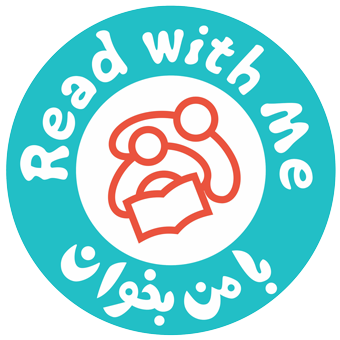Read with Me Workshops
Introduction to Children’s Literature and Quality Books
In this workshop, participants become familiar with a theoretical and practical approach to differences between literary and non-literary texts, children’s literature, its features and applications. In this workshop, several types of children and young adult literature are studied with practical and group work. Moreover, participants become familiar with quality books as well as books with poor quality. They put their knowledge to use by analyzing several books.
Illustrations and Picture Books
The theme of this workshop is the importance of visual literacy and the role of illustration in children’s books. The participants at the workshop learn how texts and illustrations are intertwined in a picture book.
Analyzing illustrations in picture books for interpretation and examining the status of illustration in reading to children are parts of the activities in this workshop.
Introduction to Story Elements
Participants of this workshop learn about story elements (plot, character, setting, theme, point-of-view, etc.), the importance of these elements and how they translate into Reading Aloud techniques. Participants also learn how to share story elements with children through games and engaging activities.
Reading Aloud Techniques and How to Organize Reading Aloud Sessions
This workshop is specifically dedicated to Reading Aloud as one of the most effective ways of reading promotion. Here, participants learn Reading Aloud techniques as well as learning how to prepare children for a Reading Aloud session. They develop their comprehension and enjoyment of books and stories through designing and implementing book-related activities.
Basic Literacy Creative Education Workshops
In this series of workshops, participants become familiar with creative and enjoyable ways of learning and improving basic literacy through literature, stories, reading, poetry, and music.
Learning Phonological and Phonemic Awareness Skills
In addition to learning to work with the “Learning Phonological and Phonemic Awareness Skills” packages, participants learn creative methods of preparing children for reading and writing. These methods focus on stories, songs, music and games. The workshop also covers topics such as enhancing children’s auditory perception and increasing their attention to surrounding sounds. Other instructions include methods of enhancing linguistic and verbal skills in children through stories, games and related activities.
Learning Numeracy Skills
This workshop gives instructions on how to work with the “Learning Numeracy Skills” packages. These packages are developed within the child-centered creative education framework. In thiAs method, mathematical education is presented to children through stories. In the Learning Numeracy Skills workshops, in theory and practice, participants learn how this method indirectly encourages children to think and acquire an in-depth knowledge of mathematical concepts through stories and related activities, making mathematics a tangible and joyful experience that they would never forget.
Dictionary of Riddles
Participants of this workshop become familiar with a variety of activities and games related to the “Dictionary of Riddles”. The purpose of these activities is to become familiar with the dictionary as a reference book, create a habit of using the reference book to find answers to questions, to recognize the importance and necessity of using the dictionary and other reference books for student research, to accelerate the children’s understanding of the subject matter and to teach the concept of classification, entertainment and pleasure. Through these activities, children can easily understand the process of conceptualization through images and link concepts to images.
“Read with Me” Libraries
In this workshop, the features and functions of a child-centered library and a rich literacy environment are introduced. In theory and practice, participants become familiar with the services of a “Read with Me” child-centered library, classifying books, and designing a dynamic library space tailored to the needs of children and young adults.
Reading with Babies and Toddlers
It is now proven that the habit of reading begins from infancy or even during the prenatal period. The “Read with Me” program holds a series of Reading with Babies and Toddlers to familiarize parents with this concept. The workshops are designed based on the simple and practical guidelines of “Baby Read-aloud Basics”, a book written by Caroline Blake Moore and Barbara Weston Ramirez published by the Institute for Research on the History of Children’s Literature and translated by Zohreh Ghaeni.
Participants learn the importance of talking and reading books to babies and toddlers. They learn how to sing songs and lullabies to their children. Tutors talk about infant directed speech (IDS) with participants, namely parents, and encourage them to practice this sort of speech. They also provide a brief introduction to books specific to babies and toddlers while participants practice reading these books to their children. Then, participants learn how to make simple books for their newborns and toddlers and practice playing games and other activities.
Dramatic Arts Workshops
Drama has a profound effect on the development of children’s cognitive, emotional and social behavior. Thus, it is one of the most important activities associated with books and reading. In “Read with Me” Dramatic Arts workshops, participants become acquainted with various drama techniques. Expression and body language techniques, creative drama, improvisation, hand puppetry, marionette puppetry, shadow play, staging, and making masks workshops are held by Read with Me experts with respect to the needs of the audience and their requests.
Environment Workshop
The link between environmental concepts and reading and raising the level of environmental knowledge of the partcipants is the goal of this workshop.
This post is also available in: Persian
